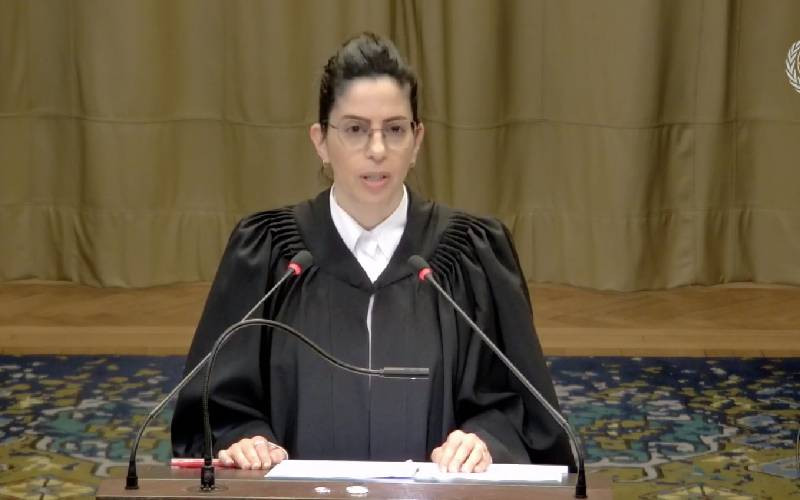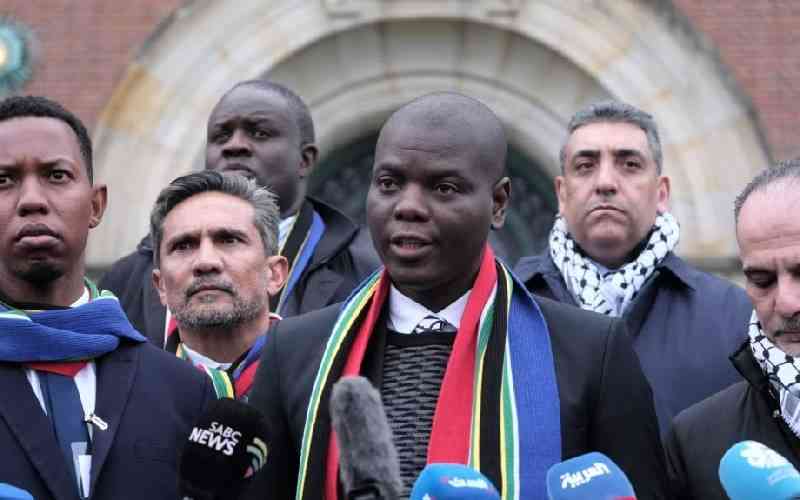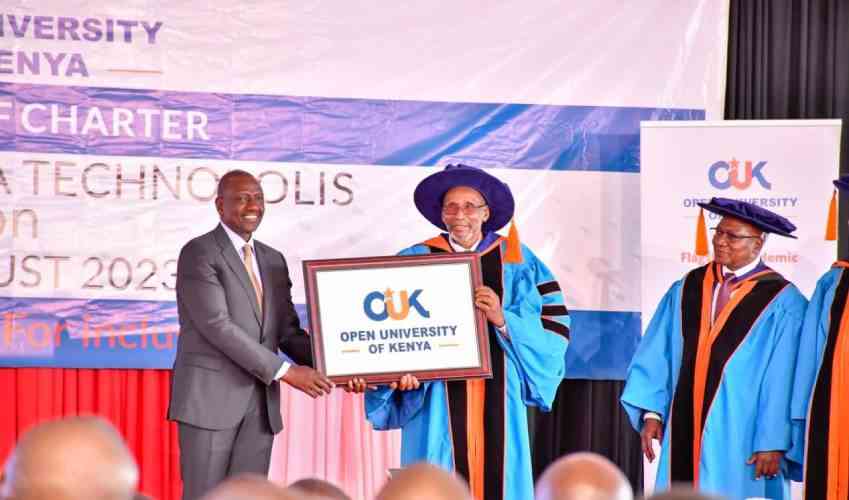NAIROBI: The gruesome murder of Meshack Yebei who seemingly abandoned The Hague prosecution side and moved over to the defence of Deputy President William Ruto says a lot about the state of our nation today.
It also turbo-speaks volumes on how much we have devalued the premium attached to human life and seemingly gone back to the Cold War era where it was a normal exercise to 'take out' enemies of State, critic(s) of leader(s), or those who in any way seemed to stand in the way of the Big Men's access to power and money.
But before we navigate the tricky and dark waters of execution, this one is a classical case, because of the stealthy manner in which he was picked up.
The morbid manner in which he was tortured, and the subsequent handling of the post-death period, given the haze surrounding the killing, it is permissible to make five quick speculations from the set of facts we have so far.
The first is that his dalliance with ICC investigators and pro-ICC NGOs gave him the ticket to an early grave.
We see this from the fears he shared with his wife and friends, and particularly the confessions to his brother Ben. No other motive has come out on his killing, just the ICC witness factor.
Secondly, having abandoned Prosecutor Fatou Besouda and with Ruto's lawyers declaring he had switched over to their side, this supposed change of position on trials at The Hague must be what made him comfortable enough to 'return home' where he hitherto faced hostility and was being treated as persona non-grata.
His feeling of safety must have been because he was no longer going to be perceived as a 'betrayer' and 'enemy' of his people. The prodigal son had returned to the father's bosom, albeit ravaged by guilt, poverty and nostalgia for going back home.
Third, Yebei's execution, just like those of other ICC witnesses, Mungiki adherents and controversial clerics, bore some form of professionalism or finesse in 'blood-work'.
No one saw him being picked, no evidence was left behind, the trail, as murder investigators would say, was 'clean'. Dumping him in the river, naked, was of course meant to ensure he is not found and if found, that the level of decomposition would not allow easy identification.
That way, the issue of whether he is dead or missing would be left to speculation for even a decade, just like that of late Mzee Jomo Kenyatta's protégé, Kung'u Karumba.
For a possible hint on those who may have killed him, friends, his testicles were crashed, according to a close friend familiar with the investigations.
We can speculate the torturers most likely were mining for certain information and had to apply the usual painful methods our security agents use, or that they not only wanted him dead, but they wanted him to experience a painful and horrendous walk into the doorway of the life hereafter!
That is why you heard the stand-off in Eldoret that police would not agree to the fact that the cadaver on the autopsy table was Yebei's, even though the family had concluded it was him from the marks on the body.
Again the police could be right, many bodies are recovered every day, leaving the final verdict as to whose body it is to scientific processes.
Stay informed. Subscribe to our newsletter
However, the determination with which the police put forth this argument does not show enthusiasm to help the family but betrays a possible attempt to distract attention from the discovery in a bid to buy time so that national attention could dissipate.
This is usually a perfect safety valve secret agents employ.
Fourth, you have not heard Rift Valley or for that matter, North Rift leaders, demand that the Government should leave no stone unturned. No pressure has been piled by the local and national leaders for probe into the murder.
No visits to the home of the bereaved. Total silence is what we have seen. The question to ask then, is what do these leaders, especially the most vocal and 'nationalistic' in the Kalenjin nation, know?
Or what do they fear or whom? Or is silence a loud admission that Yebei met the fate he deserved?
Fifthly and finally, as we sympathise with Ruto over his lawyer's revelation that Yebei was their 'critical' witness', we must also take cognisance of the fact that a group of well-connected Jubilee leaders led by the Leader of Majority in Parliament, Mr Aden Duale, called for the arrest of an NGO hustler called Ken Wafula.
Three things are unsettling here. First, Duale takes his orders from the Presidency, and is part of government. If he had the facts right about Wafula's involvement, he can have him arrested the same day.
Don't take too seriously the claim that the Director of Public Prosecutions is independent and insulated from the Executive for if you believe so then you can as well delude yourself that after discovery of oil in Turkana, it would start snowing there in the next three years.
Secondly, Duale and his friends inadvertently let out the subtle affirmation that there was an ICC dimension to the killing. They also in the same breath managed to spice the investigations with the garlic of politics.
By so doing, they cunningly pushed the mocking forefinger up Bensouda's nose while at the same time layering a criminal act with the overtones of politics.
Thirdly, given the political umbilical cord weaving through Duale and his friends at the news conference, one could say they cast Jubilee as an interested party in the Yebei affair.
Yet by being the government, Jubilee should be the one turning the stones and boulders for the truth.
It is therefore fair to be optimistic that this interest would goad the government to get to the heart of what happened in Turbo.
 The Standard Group Plc is a
multi-media organization with investments in media platforms spanning newspaper
print operations, television, radio broadcasting, digital and online services. The
Standard Group is recognized as a leading multi-media house in Kenya with a key
influence in matters of national and international interest.
The Standard Group Plc is a
multi-media organization with investments in media platforms spanning newspaper
print operations, television, radio broadcasting, digital and online services. The
Standard Group is recognized as a leading multi-media house in Kenya with a key
influence in matters of national and international interest.
 The Standard Group Plc is a
multi-media organization with investments in media platforms spanning newspaper
print operations, television, radio broadcasting, digital and online services. The
Standard Group is recognized as a leading multi-media house in Kenya with a key
influence in matters of national and international interest.
The Standard Group Plc is a
multi-media organization with investments in media platforms spanning newspaper
print operations, television, radio broadcasting, digital and online services. The
Standard Group is recognized as a leading multi-media house in Kenya with a key
influence in matters of national and international interest.









